Kalani and Jarani Dean are not your average set of twins. Kalani was born with light skin, while her sister Jarani has a darker complexion. Their mother, Whitney Meyer, who is white, and their father, Tomas Dean, who is Black, were equally astonished by the girls' differing skin tones. Their story highlights the beauty of racial diversity and the importance of love and unity.
"Kalani was as white as can be. I was just in denial because you know the odds of this? I would never think I would have a black and white twin. That's why I asked if she was albino because she was just so white," Whitney shared with TODAY.
The birth of twins with such distinctly different skin tones is a rare phenomenon. Typically, children of mixed-race parents have a skin tone that blends their parents' complexions. However, Kalani and Jarani's unique appearance has made them a living testament to the idea that race is merely a superficial difference.
Tomas recalled his surprise at their birth: "I was like, 'Yeah, she's a little light,' but I thought maybe babies are that way when they're first born. But then a couple of minutes later, her sister came out a little darker. In a million years, I never thought I'd have a girl with blue eyes. I didn't think I could pull that one off! I hope that a lot of people can see that color really isn't a big thing. What's important is love. Mysterious things can happen and life is a blessing."
The twins' differing skin tones often lead to disbelief from others, even when Whitney dresses them identically. While they share similar facial features and smiles, their skin color often confuses people. Interestingly, Kalani resembles her older Caucasian brother, Talan, while Jarani looks like Meyer's late son, Pravyn, who tragically drowned at the age of two.
The genetic intricacies behind such diversity remain a mystery to scientists. Dr. Bryce Mendelsohn, a medical geneticist at the University of California, San Francisco, explained, “The physical traits you can see in a person are just a very small sliver of the genetic diversity across human populations. A lot of times we only focus on the things our eyes can see, but what we see is a tiny tip of the iceberg of the actual genetic diversity in everyone.”
Khristi Cunningham from Ohio understands the unique experience of raising twins with different skin tones. Her fraternal twins, born to a white mother and a Black father, also have varying complexions. She resonated with Whitney's experience, saying, “Get ready for a lot of conversations with strangers!" Cunningham believes it's essential to discuss race openly, using her own children as a means to educate others about racial possibilities and promote dialogue.
"We did feel that we were obligated to share our story with others. We felt we were given these two beautiful children for a positive purpose — that purpose was to educate those who are ignorant to the fact that these things are possible, and to initiate a conversation on race in America," Cunningham told TODAY. She emphasizes that skin color is a matter of chance, not achievement. "No one on this Earth gets to stand in line to pick their skin color. It is only by chance we are brown, or black, or white."
Kalani and Jarani's story is a powerful reminder that despite our differences, love and unity are what truly matter. Their unique appearance challenges societal norms and encourages us all to look beyond skin color to see the shared humanity in everyone.
In a similar story, twin sisters Lucy and Maria Aylmer from Gloucester, England, also defy typical expectations of twin appearances. With Lucy having pale skin, red hair, and blue eyes, and Maria having a darker complexion, brown eyes, and curly black hair, they often leave people in disbelief when they reveal they are twins. Their mother, Donna, is half Black and half white, and their father, Vince, is white. Like Kalani and Jarani, Lucy and Maria have embraced their unique differences, highlighting the incredible diversity that can exist even within the same family.
This article originally appeared last year.





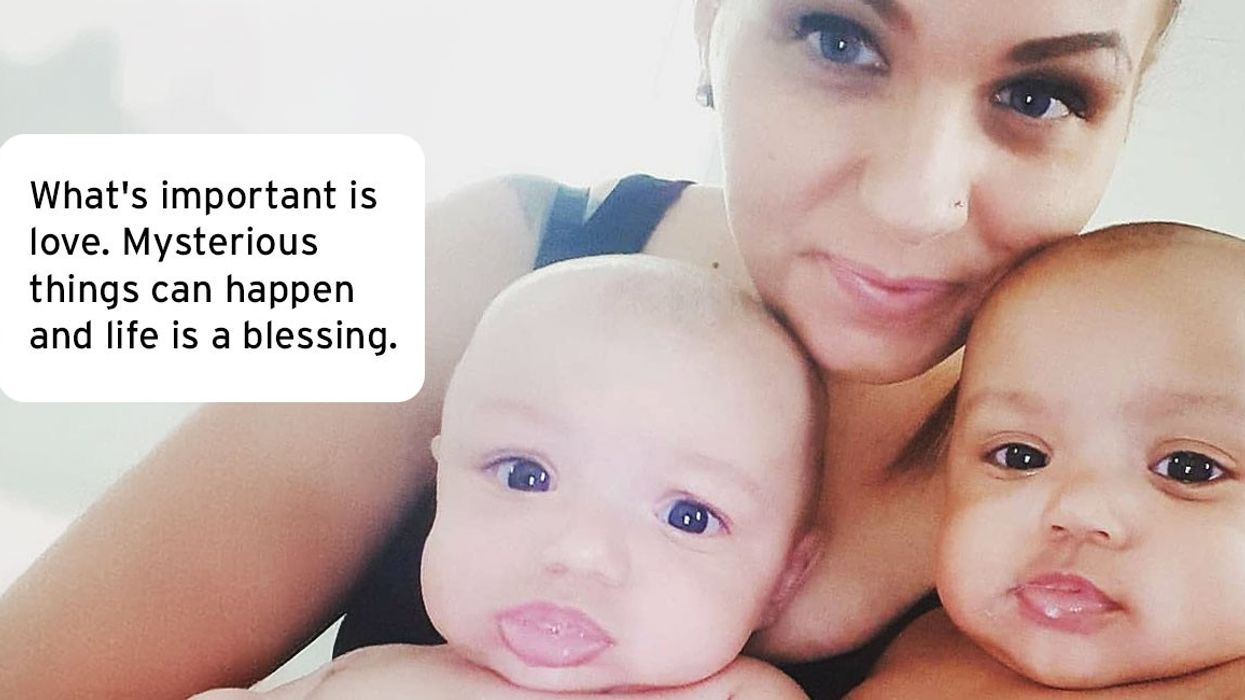




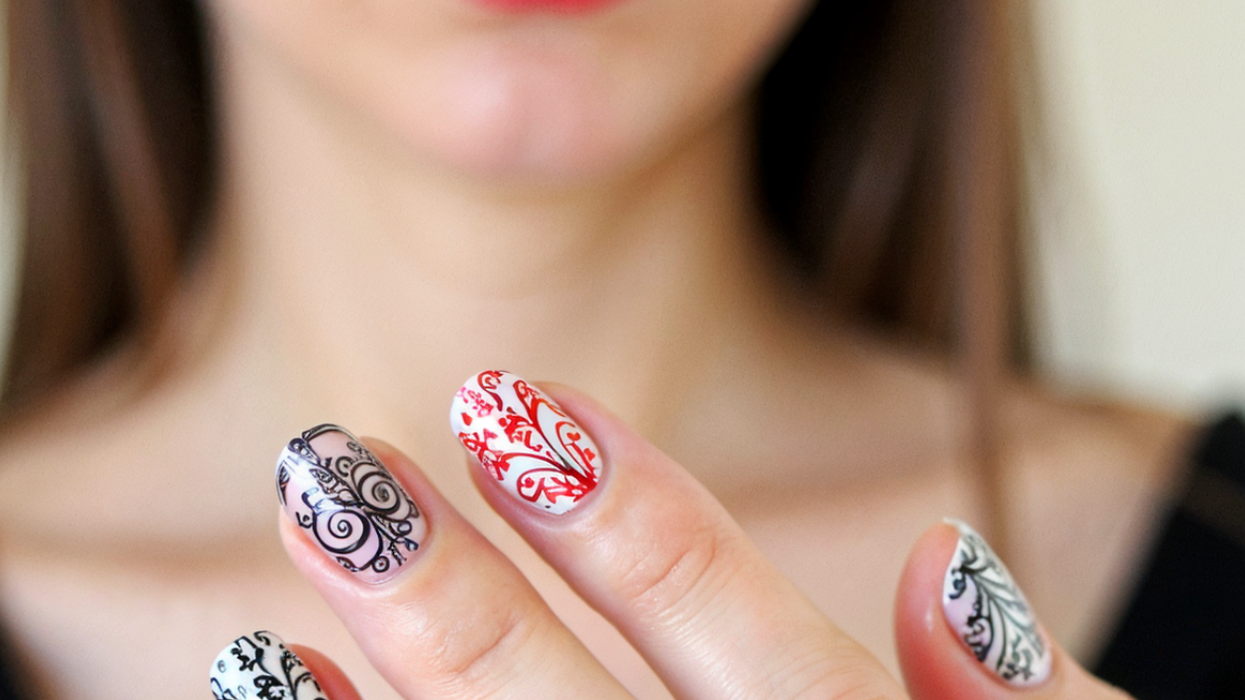









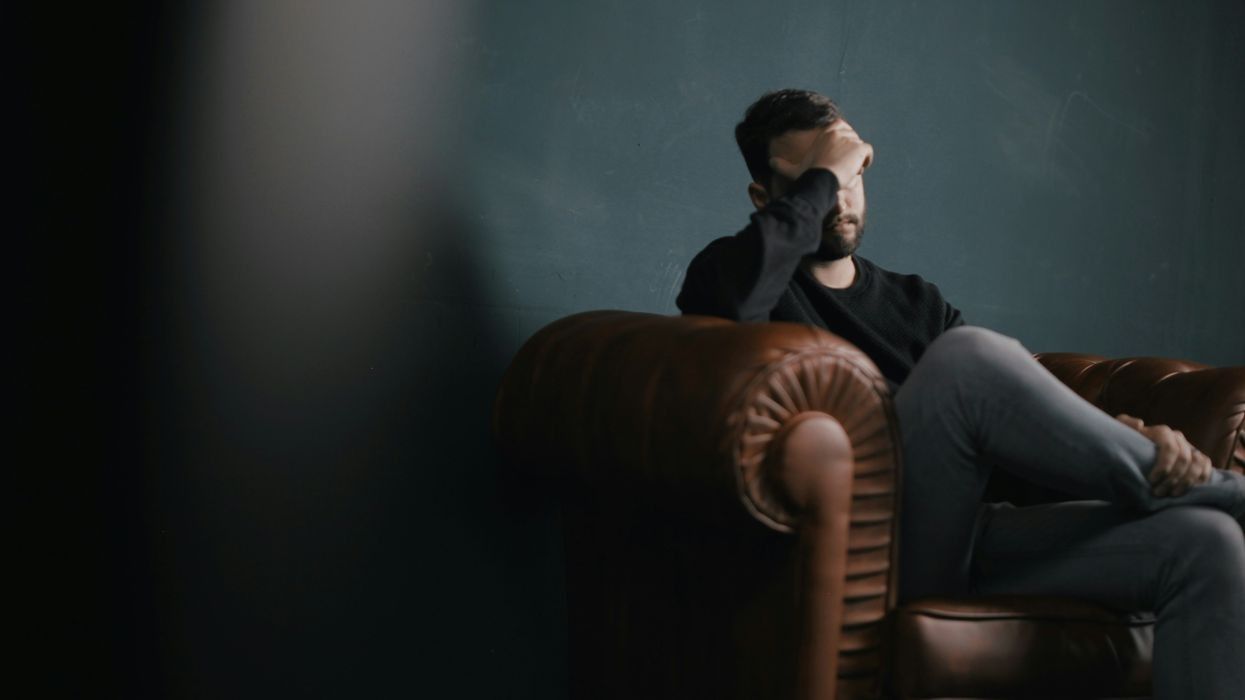



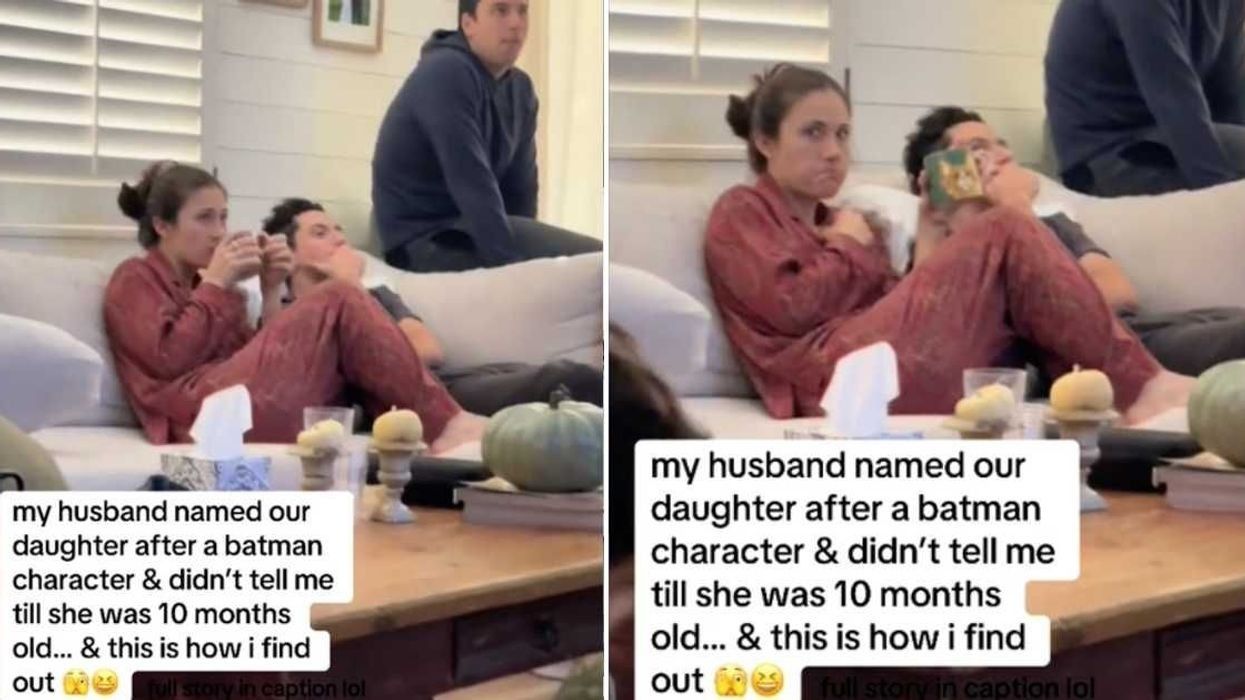
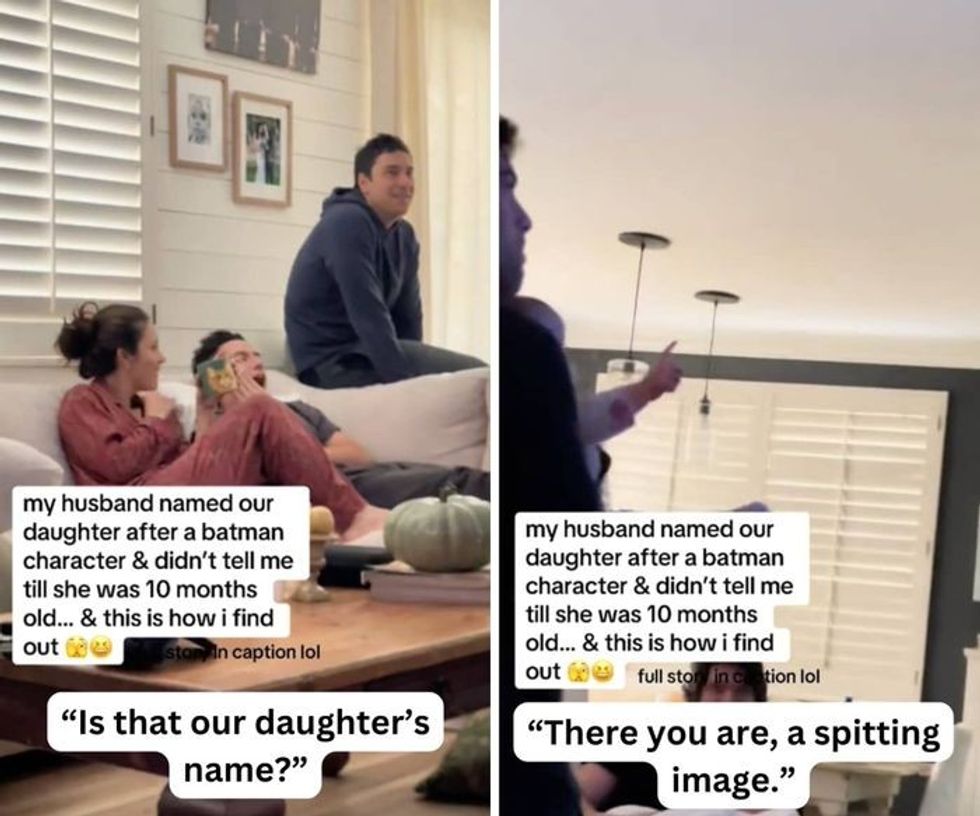

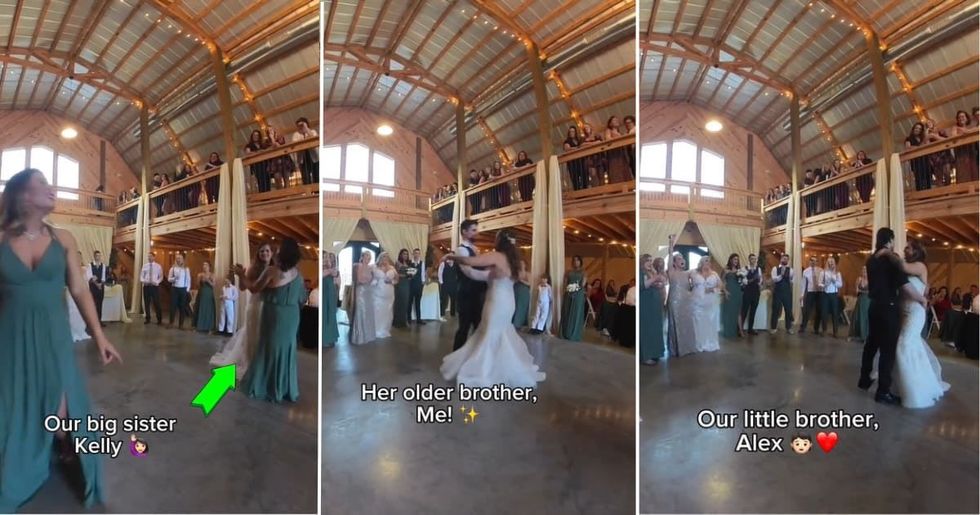
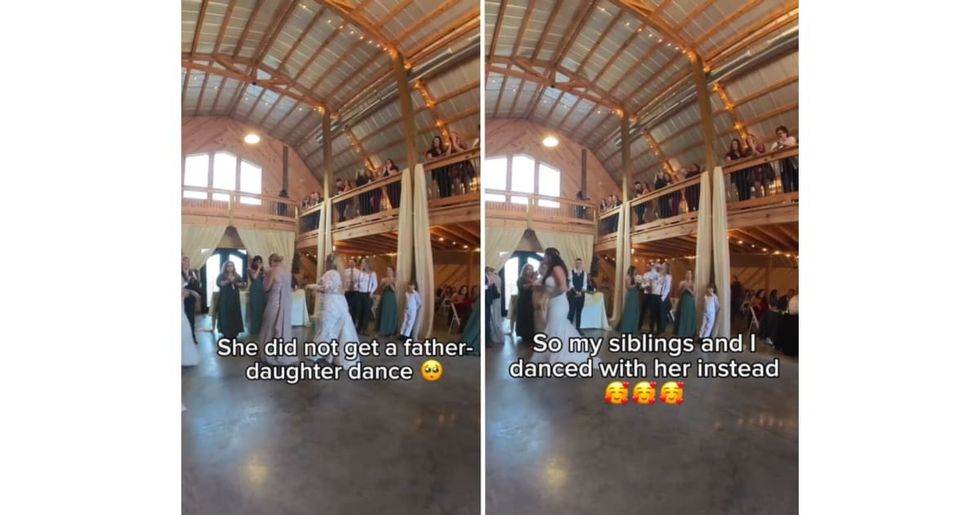 Megan didn't get the dance she thought she would, but got something better instead.
Megan didn't get the dance she thought she would, but got something better instead.